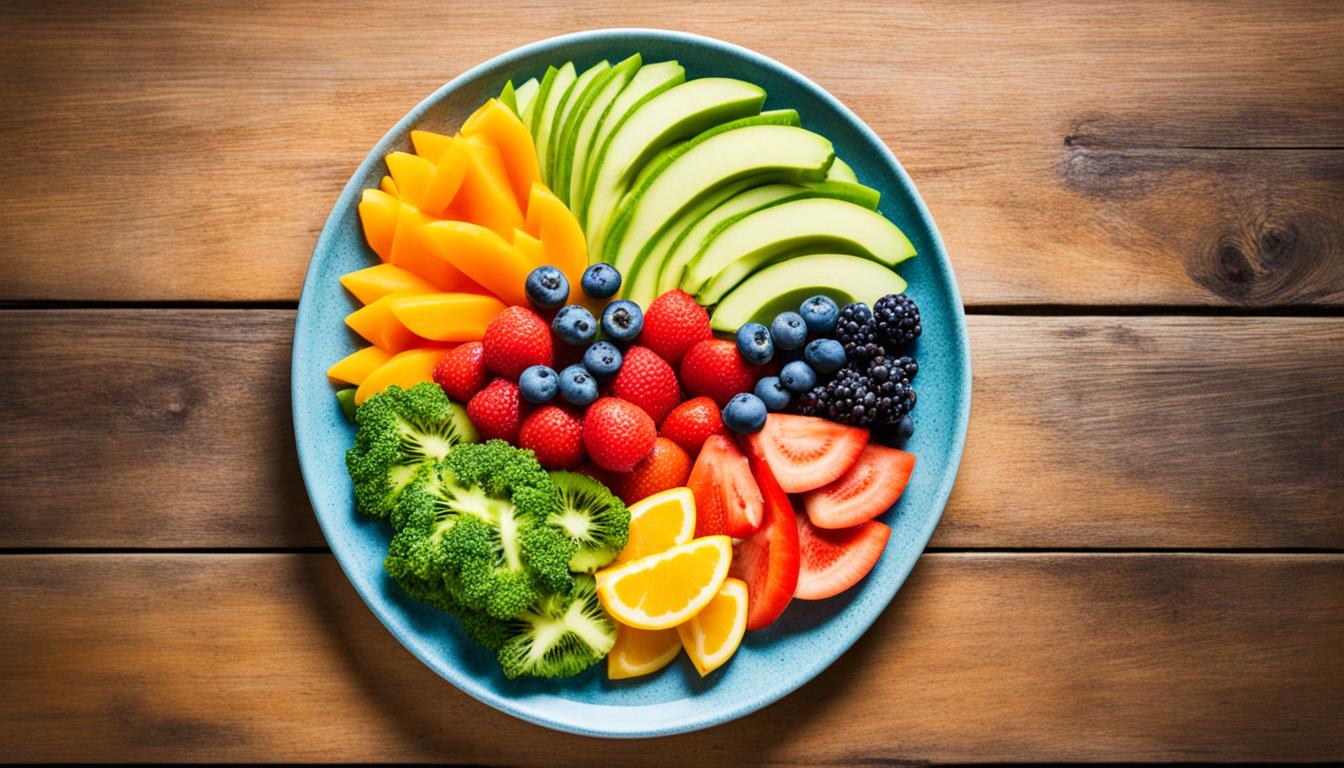Starting daily habits can really help you succeed at work. Things like moving, writing, and setting priorities can make you less stressed. They also make you feel better both in your mind and body.
It’s important to have a morning routine, meditate, eat well, and sleep enough. These things keep you full of energy and focused. Doing things like walking, reading, and making to-do lists can make you more creative and think better.

Key Takeaways
- Daily habits are vital for success, as emphasized by the Young Entrepreneur Council.
- Movement is essential for both mental and physical health, highlighted by 100% of respondents.
- Writing is a key part of daily routines for 70% of professionals.
- Effective task prioritization prevents stress and failure, noted by 80% of participants.
- A structured morning routine involving mindfulness and personal development is practiced by 60% of entrepreneurs.
- Time blocking can save approximately 2 hours of work per day, according to 90% of panelists.
Practice Daily Movement
Moving every day is key to staying focused and productive. A 2021 UK study found it hard for people under 40 to get back to exercising like before. Adding physical activity to your day can help.

Incorporate Exercise into Your Routine
Adding daily exercises like yoga, running, or intense workouts can boost mental health and heart health. Personal trainer Mary-Ellen Sabat suggests doing cardio to get your heart rate up and energy levels high. This makes you healthier overall.
Choose Activities You Enjoy
Doing activities you like makes sticking to an exercise plan easier. Online platforms like Maddie Lymburner’s YouTube channel MadFit show how important it is to pick fun physical activities. These activities keep your blood flowing and your mind clear.
Consistency is Key
Staying consistent with exercise is key to seeing long-term benefits. During the pandemic, many under 40 saw a drop in activity. This shows the importance of keeping up with a steady exercise plan. Morning workouts are great because you’re most motivated then. They help with mental health, metabolism, stress, and sleep, as a 2014 study found.
Reviewing and tweaking your exercise plan helps keep daily movement fun and useful in your life.
Age GroupPre-pandemic Fitness ReturnMain ChallengeRecommendationAbove 65YesNoneContinue regular routineUnder 40NoMotivation and consistencyEngage in enjoyable activities
Start Your Day with Writing
Starting your day with writing can make it better. Syed Balkhi says writing in the early morning clears your mind and sets your goals. A morning writing habit helps you make progress in your projects and work.

Outline Daily Goals
It’s key to start with goal setting to be productive. Planning what you want to do helps you focus. In Spring 2011, writing 42,000 words in four months was thanks to a good routine. Having clear goals keeps you on track all day.
Reflect on Previous Day’s Accomplishments
Adding daily reflection to your morning can help you grow. Looking back at what you did yesterday lets you see what’s working and what’s not. In Fall 2011, the writer hit 21,000 words by reflecting and adjusting his plan. This keeps you focused and moving forward.
Maintain a Journal
Journaling is great for jotting down ideas, planning, and solving problems. It keeps you on track with productivity planning. In 2011, writing two hours a day, five days a week, led to about 70,000 new words. Journaling keeps you organized and helps you reach your goals.
Time PeriodWords WrittenSpring 201142,000Summer 20118,000Fall 201121,000Entire Year 201170,000
Adding these habits to your morning routine can make your day better. It sets you up for success and achievement all day long.
Prioritize Tasks Effectively
Understanding the importance of effective prioritization is key to good task management. It’s important to know which tasks need quick action and which can wait. This helps with delegation strategies and reduces stress.
Starting with easy tasks can make you feel like you’re getting things done. But better methods like the Eisenhower Matrix and Eat the Frog method help organize tasks well. Jared Atchison says knowing which tasks are urgent and important is key to managing tasks well.

The Eisenhower Matrix sorts tasks into four groups by their urgency and importance. Using this method, along with others like the Most Important Task (MIT) method, can really boost productivity. These methods are great for anyone wanting to do more.
Only a few people can multitask well, says the Cleveland Clinic. Focusing on one task at a time with effective prioritization can make you more efficient and less stressed. This approach helps you meet important goals without hurting your work or health.
For project managers, prioritizing tasks is very important. Using methods like the ABCDE method and MIT helps focus on tasks that matter for business goals. Teamwork.com shows how to share tasks, track progress, and see your workload, all helping with delegation strategies.
MethodDescriptionApplicationEisenhower MatrixCategories tasks by importance and urgencyStructuring prioritizationABCDE MethodAssigns letter values to tasks based on importanceQuick identification of prioritiesMost Important Task (MIT)Selects key daily tasks impacting overall goalsEnsuring focused productivityChunkingBreaks down activities into focused blocks of timeEnhancing deep focus and task completionAgile prioritizationFocuses on value, urgency, and project goalsSwift responses to changing demands
Having a daily schedule with your top tasks can make you work better. It helps you finish tasks on time. Being flexible and adaptable lets you handle surprises well, making your task management better.
Complete a Morning Routine
Starting your day with a good morning routine can boost your productivity and mindfulness. People like Tonika Bruce use mindfulness, exercise, and personal growth in their morning. This sets a strong foundation for a great day.
A good morning routine has many benefits for your mind and body. It helps you stay calm and focused.
Include Mindfulness Practices
Adding mindfulness practices like meditation can make you feel calm and ready. Meditation helps you relax and manage stress. It’s key for a balanced life.
Studies show that waking up an hour early can lower depression by 23%. This makes mindfulness a big part of a morning routine for balance.
Develop Regular Exercises
Adding morning exercises is important for a good routine. People like Jack Dorsey and Nancy Pelosi make time for workouts. Jeff Sanders starts his day by drinking a liter of water to boost his energy.
Exercise improves your health and helps your brain work better. This is good for learning and remembering things, which helps you grow.
Allow Time for Personal Development
Setting aside time for personal growth in the morning helps you reach your goals. Writing down tasks, like Kenneth Chenault suggests, and focusing on health and wealth, as Kevin Kruse advises, can help you stay on track.
Doing personal development activities in the morning sets a positive tone for the day. It helps you keep a good balance between work and life.

EffectStatisticsIncreased EarningsPeople with a morning routine earn $12,500 more each yearImproved Mental HealthWaking up 1 hour earlier reduces depression rates by 23%Enhanced ProductivityDrinking water boosts energy within the first 45 mins
Adding these practices to your morning routine can make your day balanced, productive, and fulfilling.
Use Time Blocking Techniques
Time blocking is a great way to manage your time better. It helps you stay focused and get more done. By setting aside specific times for tasks, you can avoid distractions and focus on what’s important.
This method also helps reduce stress. It stops the problem of trying to do too many things at once.
Experts like Jack Dorsey, the founder of Square, use time blocking to manage their busy lives. He shows how it can help even in tough jobs.
Studies say time blocking can make you 150% more productive. It lets you do a full week’s work in less time. This method includes strategies like task batching and day theming.
Task batching is great for grouping similar tasks together. It makes your work easier and helps you focus better. This way, you can give your full attention to one task at a time.
To use time blocking well, set clear goals and organize your day. Avoid distractions and check your schedule often. Cal Newport says focusing on a few tasks in each block is best for getting things done.
Time blocking helps you use your time wisely. It lets you focus on what you need to do. This way, you feel in control of your work and avoid burnout.
Mediate Regularly
Regular meditation can greatly improve your thinking and how you handle stress. It calms your mind and lowers anxiety. This leads to feeling better and more balanced emotionally.

Choose a Quiet Space
It’s important to find a peaceful place for meditation. Having a special spot for meditation makes it better than meditating at home. This quiet place helps you relax and be more mindful.
Set Aside Specific Times
Being consistent with meditation is key. You can try Jon Zabat-Kinn’s Mindfulness-Based Stress Reduction (MBSR) for 40-45 minutes or the Transcendental Meditation (TM) for 20 minutes twice a day. Having a regular routine boosts your thinking skills.
Explore Different Meditation Types
There are many types of meditation, like guided meditations or the Tibetan monks’ way of meditating several times a day. Dr. Julia Basso, Ph.D., says guided meditations are great for busy people to calm down and think better. You can do short 5-minute meditations or longer 30-minute ones. The main thing is to meditate regularly and find what suits you.
Meditation is powerful when done regularly and with purpose. Daily mindfulness helps with stress and makes you better at organizing tasks and staying calm. It also boosts your thinking skills and emotional health.
Eat Healthy Meals and Stay Hydrated
Keeping a healthy diet and drinking enough water are key to having lots of energy all week. These habits help you feel good and keep you going, which is important for handling many tasks.
Plan Balanced Meals
Good meal planning is important for a balanced diet. Make a weekly menu with lots of different foods like veggies, fruits, proteins, and whole grains. Reading Nutrition Facts labels helps pick foods rich in fiber, vitamins, and minerals. Cooking meals ahead and using frozen or pre-cut veggies saves time and helps you eat well.

Drink Plenty of Water
Drinking enough water is key for your body to work right. Aim for 1.5-2 liters of fluid each day. Water is the best choice for staying hydrated without extra calories from sugary drinks. Drinking enough water helps you stay focused and energetic, which is important for a good day.
Avoid Processed Foods
Try to eat fewer processed foods to stay healthy. These foods are often full of added sugars, sodium, and bad fats. They can make you feel tired and harm your health in the long run. Eating more whole foods like fresh veggies and lean proteins is better for your nutrition and energy. Eating like this, with veggies and fruits taking up half your plate, is a good way to get what you need, as Heart & Stroke suggests.
- Do at least 150 minutes of moderate exercise each week.
- Start with light or moderate activities if you’re new to being active.
- Keep up good health by doing muscle-strengthening activities twice a week.
- Make exercise easier by breaking it into 10-minute bits if you’re busy.
- Work out with family and friends to stay motivated and safe.
Balanced Diet ComponentsBenefitsVegetables & FruitsFull of vitamins and minerals, keeps your immune system strongLean ProteinsHelps build and repair tissues, keeps muscle strongWhole GrainsHas fiber, aids digestionHydrationKeeps your body working right, boosts focus and energy
Create a To-Do List
Making a to-do list can boost your organization skills and help with daily planning. Candice Georgiadis says it’s great for handling your tasks and duties. A good to-do list makes your mind clear and helps you focus on important tasks. This leads to doing tasks better and being more productive.
Using apps for your to-do lists can make things easier. They help sort and prioritize tasks with ease. You can set reminders, due dates, and get notifications to finish tasks on time. These apps also help break big tasks into smaller ones, making them easier to handle.
The article shares 15 tips for a better to-do list. It says to make each item clear and doable. Use verbs to start each entry for clear steps. It’s important to prioritize tasks and make different lists for different types of tasks.
This way, you focus on what’s really important. Capturing ideas quickly in your app helps you stay organized. It cuts down on waste and makes you more productive.
Using these tips can make you feel accomplished as you finish tasks. It motivates you to keep being productive. Adding a strong to-do list to your daily life is a great productivity tool. It changes how you handle your time and tasks.
FAQ
What daily habits can contribute to a productive week?
Adding movement, writing, and setting priorities to your day can boost your productivity. A steady morning routine, meditation, eating well, and sleeping enough keep you energized and focused.
How does daily movement affect productivity?
Daily exercise boosts your mental clarity and focus, says Cooper Harris. It improves blood flow, helps with stress, and keeps you physically and mentally healthy. Doing yoga or high-intensity workouts regularly brings long-term health gains.
What is the benefit of starting the day with writing?
Starting your day with writing, as suggested by Syed Balkhi, clears your mind and sets goals. Journaling lets you jot down ideas, tasks, and thoughts. It helps organize your day and keeps your mind clear.
Why is task prioritization important?
Good task prioritization, as Jared Atchison points out, makes time management and productivity better. It helps you focus on urgent tasks, manage time well, and lowers stress. This way, you meet your goals without sacrificing quality.
How does a morning routine contribute to productivity?
A morning routine, like Tonika Bruce’s, sets a positive day tone, giving you control and adding productive hours. It includes mindfulness, exercise, and personal growth, getting you ready for the day’s tasks.
What is time blocking, and how does it optimize productivity?
Time blocking, suggested by John Turner, means setting specific times for tasks. It saves work hours and lowers stress. This method helps you focus on what’s most important.
How does regular meditation enhance work performance?
Salvador Ordorica says regular meditation boosts productivity by sharpening focus and cutting distractions. A daily meditation practice in a calm spot helps your mental and physical performance all day.
What role does nutrition play in productivity?
Stephanie Wells says eating balanced meals and staying hydrated keeps your energy and focus up. Planning meals and choosing whole foods over junk helps your health and energy, crucial for a productive week.
How can creating a to-do list improve productivity?
Making a to-do list, like Candice Georgiadis suggests, keeps your tasks in order and clear. It helps you focus and finish important tasks, giving you a sense of achievement and keeping you motivated.

More Posts
13 Time Management Tips for Middle School Students
Managing time is key for middle school students. They have school, hobbies, homework, and chores. Learning time management helps them do well in today’s world. They learn to choose what’s most important, stay organized, and...
Top 5 Productivity Tips for Students During Exams
Exams are a critical time in school. They demand students to be very productive. Success means balancing good study habits and taking care of yourself. Most college students admit they put things off...
7 Ways in Which Staying Hydrated at Work Improves Productivity
Keeping up with water intake at work is key to being productive and staying healthy. Our bodies are about 60 percent water, and we lose 2 to 3 liters every day. If you...
Free productivity eBooks & booklets Collection
**Work Smarter. Plan Better. Live More Intentionally.** **At Week Plan, our goal is to help you zero in on what really counts. And to that end, we're stoked to share our carefully selected...